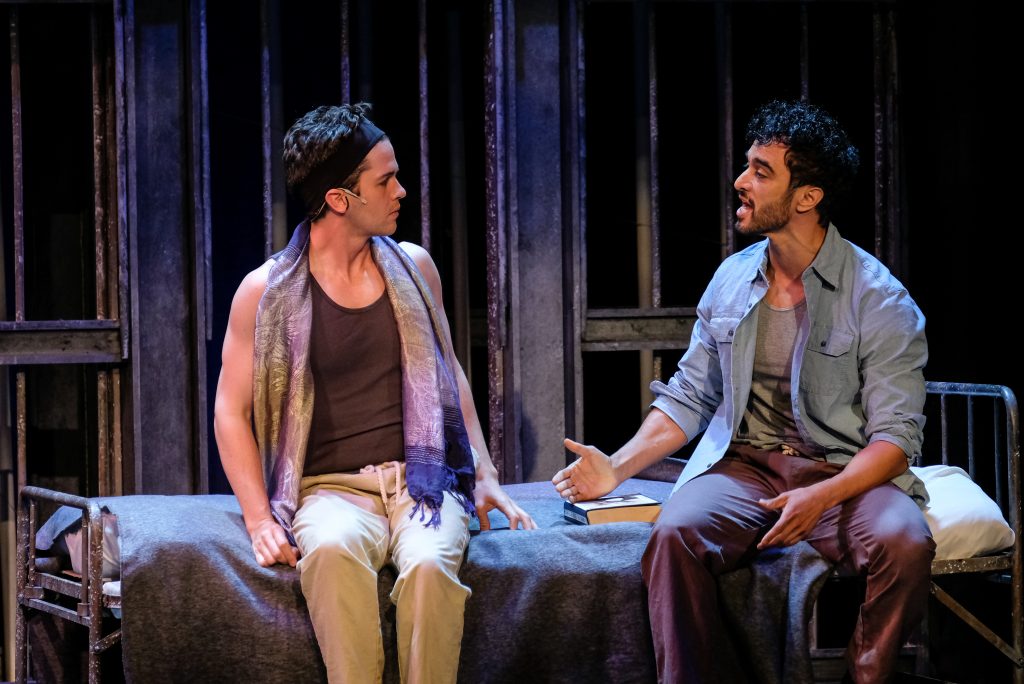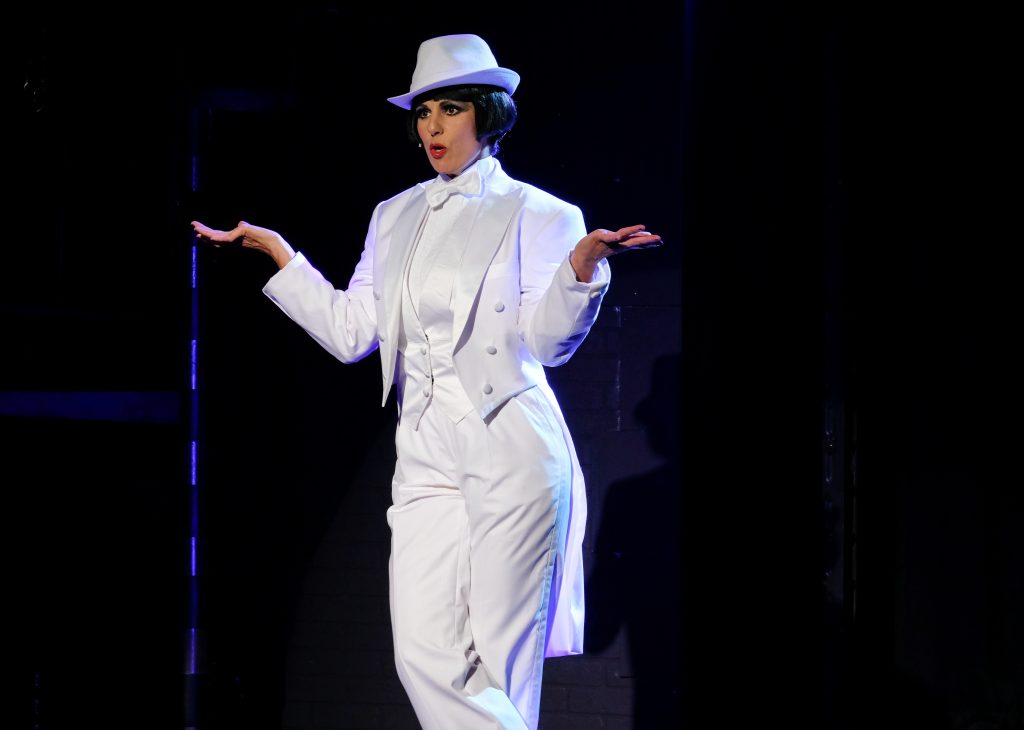Finding Light in a Hopeless World

Jeffrey Scott Parsons and Richard Bermudez. (Photos courtesy of Ken Jacques.)
Based on the novel of the same name, which was also adapted for the big screen, two strangers find themselves sharing a cell in a Latin American prison under the Brazilian military government. Valentin Arregui (Richard Bermudez) was arrested for his Marxist revolutionist actions, while the openly gay window dresser Luis Molina (Jeffrey Scott Parsons) was sentenced to prison for pedophilia.
Desperate for company, Luis wants to befriend the antisocial and furious Valentin. He attempts to win him over by talking about motion pictures that featured his favorite star, Aurora (Natalie Nucci).
Those that haven’t seen this musical composed by Chicago composer John Kander, and lyricist, Fred Ebb, should know that both shows handle prison life in different ways. While Chicago is a cynically funny look at crime and punishment, Kiss of the Spider Woman deals with heavier material.
Prisoners are tortured, poisoned and even killed by guards and the heartless warden (Robert Hoyt). Patrick Hoyny’s sound effects, such as guns shots and the screams of a felon in agonizing pain, showcase the brutal treatment at the penitentiary. Audiences feel a sense of isolation on director/choreographer Ray Limon, Jennifer Edwards and Doug Davis’s set.
As with other Kander and Ebb stories, the songs are chock full of black wit and frequently smart lyrics. “Dressing Them Up/I Draw the Line,” Good Times” and “Morphine Tango” add comic relief to a dangerous environment.
The four-person orchestra, led by keyboardist/conductor, Leigh Sutherlin, contribute to the more emotional tunes. Songs that delve into Luis and Valentin’s personal lives, such as “Dear One,” “She’s a Woman” and “The Day After That,” leave a bigger impact because of the musicians’ bittersweet work.
Providing hope throughout the production is the relationship that grows between the convicts.
Parsons and Bermudez are front and center onstage for almost the entire runtime. Each of them display polar opposite personalities through both their acting and singing. Parsons often croons with a droll sense of humor, while Bermudez sings many of his numbers with laser-focused intensity.
Both performers assuredly navigate through the stages of Luis and Valentin’s connection from odd couple bickering to loyal devotion. They sell the unusual progression in their camaraderie by letting conversations evolve naturally.
Inhabiting Luis’s mind is the “spider woman” herself, Aurora. Wearing colorful costumes from Janet Pitcher, Nucci looks, acts and sings like a big screen legend.
Fantasy sequences with Aurora are enhanced when Limon’s staging is able to be flashy and invigorating. His sensuous movements for Aurora, along with Edwards’ vibrant lighting, symbolize the optimism that Luis has throughout the evening.

Natalie Nucci.
What McNally gets right is the character progression that happens between the cellmates. They both change considerably in their personalities, which leads to a couple of poignant sequences.
Limon’s interpretation might be recommended for people 17 and up, yet that’s a bit of a stretch. Even with moments of onstage violence, homophobic dialogue and an implied sex scene, the material never goes beyond what could be seen or heard in a PG-13 motion picture.
Ambitious and touching, Limon’s rendition makes for an edgy and haunting experience. Kiss of the Spider Woman doesn’t get produced often in California, and it’s definitely worth the car ride to Escondido.
DOWNLOAD MUSICAL NUMBERS AND CAST AND CREW HERE
[box] Show times are Thursdays at 1:00 p.m and 8:00 p.m, Saturdays at 1:00 p.m and 8:00 p.m and Sundays at 1:00 p.m. [/box]

A fan of theatre from a young age, David Dixon began writing reviews while in middle school, for Union Tribune’s Rated G column and sdcnn.com. He was the Entertainment Editor for SDSU’s The Daily Aztec. Currently, he contributes to San Diego Community News Network, a regional reviewer for Talkin’ Broadway, an interviewer for San Diego Theatre Reviews and has won several San Diego Press Club Excellence in Journalism Awards. David is a San Diego Theatre Critics Circle member, an American Theatre Critics Association member & Regional Theatre Tony Award voter.


